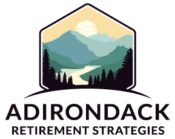Financial Planning &
Retirement Counseling Services
 Deciding when to retire may be one of the most important decisions you will make. When planned for in advance, you have realistic expectations of what your retirement will be like and the opportunity to change the outcome if it’s not what you want. The common question is, “How much will I need in retirement?” followed by “How do I save for what I need in retirement?”
Think of retirement as an extended vacation that could span 10-30 years or more. If you budget for a special vacation, a home, or new car, you already understand the value of planning ahead and setting aside money earmarked for something you want to enjoy. Retirement preparation should be part of your plan, but oftentimes it gets put on the back burner because there are other more immediate needs or wants that consume your time and money. How can you do it all? And, then during retirement, how do you manage your assets to make them last longer than you need?
As a Certified Retirement Counselor® (CRC®), Connie will be your sounding board and planning partner during both the accumulation and distribution phases of retirement. She can simplify your wealth planning by integrating investment, education, retirement, and estate plans into one consolidated plan.
Deciding when to retire may be one of the most important decisions you will make. When planned for in advance, you have realistic expectations of what your retirement will be like and the opportunity to change the outcome if it’s not what you want. The common question is, “How much will I need in retirement?” followed by “How do I save for what I need in retirement?”
Think of retirement as an extended vacation that could span 10-30 years or more. If you budget for a special vacation, a home, or new car, you already understand the value of planning ahead and setting aside money earmarked for something you want to enjoy. Retirement preparation should be part of your plan, but oftentimes it gets put on the back burner because there are other more immediate needs or wants that consume your time and money. How can you do it all? And, then during retirement, how do you manage your assets to make them last longer than you need?
As a Certified Retirement Counselor® (CRC®), Connie will be your sounding board and planning partner during both the accumulation and distribution phases of retirement. She can simplify your wealth planning by integrating investment, education, retirement, and estate plans into one consolidated plan.
How do I plan for college tuitions and retirement at the same time? What if there’s an emergency or income reduction that I didn’t plan for? How do I know if I have enough life insurance? How does my home impact my retirement planning? Are annuities something that I should have or need? Do I need long-term care insurance? What kind of health care costs might I have? What impact and choices do I have regarding my employer plan or pension? What options do I have for taking my Social Security, and which option is best?
The answer to all these questions, and others, impact how prepared you are for retirement. It might seem overwhelming, so instead you may tell yourself “I’ll be fine,” or “It’s too late to do anything about it now.” But, isn’t peace of mind for years or decades worth spending a few hours today?
Different Phases Require Different Focuses There are several phases to retirement, and each phase should be planned for so you can enjoy what you have worked for your entire life. As a CRC®, Connie has the knowledge, tools, and experience to develop a plan with you to effectively prepare for retirement. We will address all the questions and concerns you have, as well as those that you may not have considered. We will identify your needs and wants and get a clear picture of the financial means it will take to achieve them. You will receive information based on modeling tools to help you understand retirement timing and its impact. Then, we will develop a plan that begins as soon as you are ready to make the commitment to follow one. Ultimately, the decisions will be yours to make, therefore think of working with Connie as a way to know all of your options and the likely outcomes based on the decisions you make. Plans Change! Being realistic, circumstances change so financial plans may need to be changed, too. New job? Family addition? Responsibility for an elderly parent? Remaining on plan for retirement may mean that your strategies and approaches may need to change as well. So, when you experience changes in your job, marital status, births, and even losses, we’ll be there to help you navigate their impact. So, how much will you need in retirement? A general rule of thumb is that you’ll need 85% of pre-retirement income during retirement. However, if you plan for higher replacement percentages, you’ll be positioned to avoid unpleasant surprises at a time when you’ll have fewer options to recover.